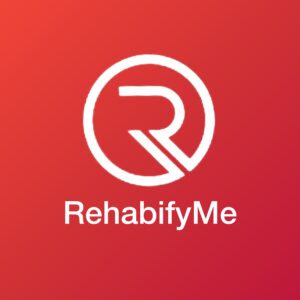
As World Health Day approaches on April 7th, it’s a powerful reminder that health is not just a medical concern—it is a deeply personal, psychological, and cultural experience. While the theme of World Health Day changes each year, one truth remains constant: we are collectively struggling to take care of our health in a way that truly honors the complexities of the human experience. The paradox? We have more information and access to care than ever before, yet mental health issues, chronic illness, and lifestyle-related diseases are on the rise globally.
From a psychological standpoint, one of the biggest obstacles to maintaining good health is the disconnect between awareness and action. Health anxiety, decision paralysis, and information overload contribute to what psychologists call “wellness fatigue.” According to the World Health Organization (WHO), over one in eight people globally live with a mental disorder, many of which are stress-related or connected to lifestyle misalignment. Despite public health campaigns, the internalization of guilt, shame, or comparison often overshadows practical, sustainable change (WHO, 2022).
Recent studies show that many people struggle to take action not because they don’t care about their health, but because modern wellness messaging often triggers anxiety instead of empowerment. A meta-analysis by Diefenbach and Leventhal (1996) found that individuals are less likely to engage in preventive health behavior if information is presented in a fear-based, confusing, or overly prescriptive manner. Add to this the social media-fueled obsession with “optimization,” and it’s no surprise that people are beginning to feel like they’re always losing the race of health.
A growing trend in global health psychology suggests that we’re outsourcing our self-understanding—relying too heavily on influencers, apps, supplements, and quick fixes without integrating or questioning what truly works for us individually. The biomedical model of health, while effective in acute and emergency care, often falls short in addressing the psychological and spiritual aspects of wellness. When people aren’t taught to explore their own rhythms, needs, or ancestral health patterns, they become dependent on external authority rather than internal wisdom. This disconnect may be contributing to the rise in chronic illnesses like diabetes, obesity, and cardiovascular disease—conditions linked to lifestyle but sustained by psychological stress and disembodiment (Egede & Ellis, 2010).
Culturally, the concept of health varies dramatically. In many Indigenous and Eastern traditions, health is seen as a state of harmony between the body, mind, community, and environment. Ayurveda, Traditional Chinese Medicine, and African healing systems treat the individual holistically—recognizing that imbalance in any area of life affects overall well-being. However, Western health systems often fragment the body into parts and isolate symptoms from the lived experience. While both approaches have their merits, the globalized world is currently leaning heavily on Western models, often dismissing culturally rooted knowledge systems that prioritize prevention, intuition, and lifestyle alignment.
This brings both benefits and challenges. The pros of our modern health infrastructure include advances in technology, increased lifespan, and life-saving medical interventions. On the other hand, the cons include overmedicalization, pharmaceutical dependence, and a loss of agency. We are told what to eat, how to exercise, when to rest, and which pills to take—but rarely encouraged to ask, “What does my body need? What emotional patterns are affecting my digestion, sleep, or immunity?” As noted in the work of Gabor Maté (2011), repressed emotions and unaddressed trauma often manifest as physical illness, yet many treatment plans neglect this connection entirely.
If we continue on this trajectory—treating health like a commodity, outsourcing it, and ignoring the psychological roots of imbalance—we risk creating a society that looks “healthy” on the outside but is deeply unwell on the inside. The wellness industry may be booming, but true well-being cannot be bought, downloaded, or dictated. It must be remembered, reclaimed, and redefined—individually and collectively.
This World Health Day, perhaps the most radical thing we can do is pause, turn inward, and ask, “Am I living in a way that supports my body, mind, and soul—or am I just following a script that was never written for me?”
REFERENCES:
- World Health Organization. (2022). World Mental Health Report: Transforming Mental Health for All. Retrieved from https://www.who.int
- Diefenbach, M. A., & Leventhal, H. (1996). The common-sense model of illness representation: Theoretical and practical considerations. Journal of Social Distress and the Homeless, 5(1), 11–38.
- Egede, L. E., & Ellis, C. (2010). Diabetes and depression: Global perspectives. Diabetes Research and Clinical Practice, 87(3), 302–312.
- Maté, G. (2011). When the Body Says No: Exploring the Stress-Disease Connection. Knopf Canada.
- Goyal, M., Singh, S., Sibinga, E. M. S., et al. (2014). Meditation programs for psychological stress and well-being: A systematic review and meta-analysis. JAMA Internal Medicine, 174(3), 357–368.
- Kirmayer, L. J. (2004). The cultural diversity of healing: Meaning, metaphor and mechanism. British Medical Bulletin, 69, 33–48.
- Suls, J., & Rothman, A. (2004). Evolution of the biopsychosocial model: Prospects and challenges for health psychology. Health Psychology, 23(2), 119–125.

